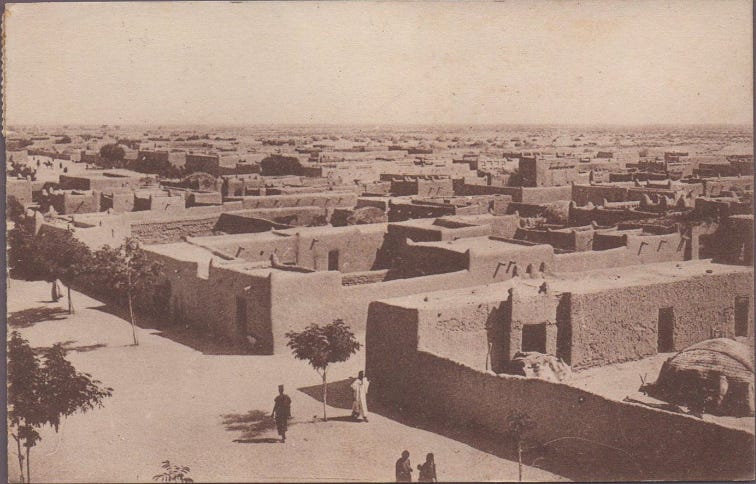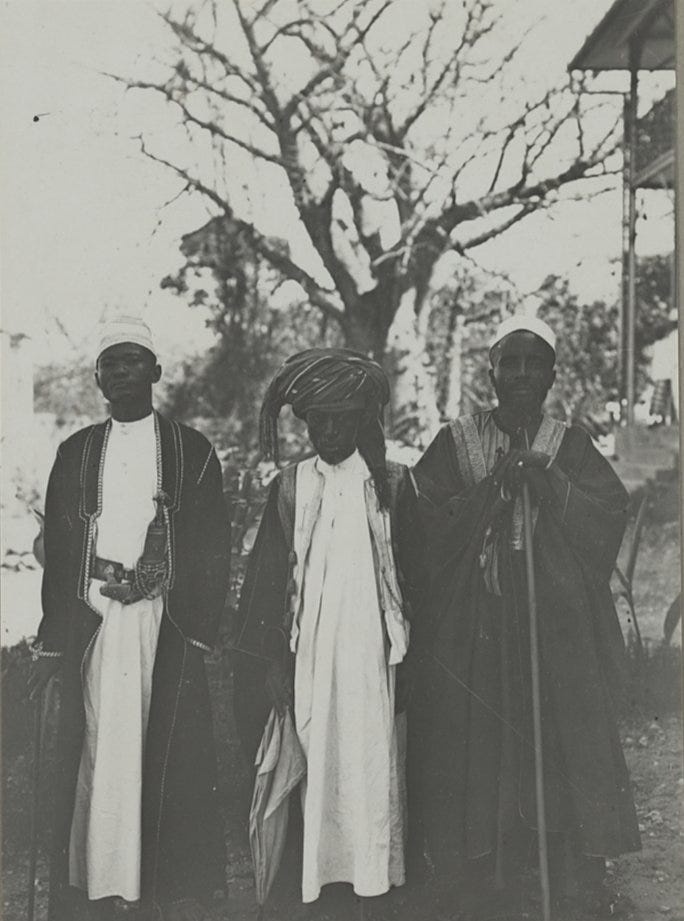a brief note on Ethnicity and the State in Africa
the evolution of the Tutsi/Hutu dichotomy in the precolonial Great Lakes.
Africa is often considered the most culturally diverse continent, a fact that is thought to significantly influence state development.
However, the identification and study of cultures and social complexity in pre-colonial African societies has hardly been known for its conceptual clarity and scientific rigour. In the early 20th century, colonial authorities confronted with the diversity of their subject population set about the task of classifying them inorder to determine the 'true rulers' of the past so they could add the legitimacy of tradition to the colony's 'Native Authority.'1
Urged on by the colonial authorities, early anthropologists and linguists described cultures, languages, and ethnicities as discrete, bounded groups, whose distribution could be captured on an 'ethnic map' such as George Murdock's now infamous 1959 map of African "tribes". Similarly, early historians of Africa were preoccupied with finding the 'true origins' of these groups, their migration to their present territories, and the innovations they supposedly carried with them.2
The disciplines of anthropology, linguistics, and history in Africa have since come a long way from their problematic foundations. Cultures and ethnicities3 are now understood to be more fluid and variable social constructs that shape and are shaped by historical processes of social change and evolution. This new approach to Africa's social history has also revealed that languages are not the sole indicators of culture, since linguistic differences alone can’t determine social interactions.4
Most African states and societies were recognizably heterogeneous —from small kingdoms like Kuba to large empires like Mali— and interactions between different social groups could occur across multiple cultural zones. The existence of 'diasporic communities' across a vast region such as the Hausa diaspora and the Wangara diaspora in West Africa, and the Swahili diaspora in East Africa, also indicates that cultural convergence between different African societies wasn't infrequent, and could be facilitated by trade, religion and the state.
‘ethnic’ groups in the Mali empire (approx. 1 million sqkm) and the Kuba kingdom (approx. 27,000 sqkm).5
As one historian succinctly puts it; "Political and ethnic boundaries rarely coincided in pre-colonial Africa. Human ambitions were too pressing to allow people to remain static over long periods. States expanded when they were sufficiently powerful to do so. Communities competed with one another to attract settlers and thereby gain supporters."6
Ethnicities and cultures are therefore historical and not primordial phenomena. One of the most profound examples of the historical evolution of social identities in Africa comes from the Great Lakes region of East Africa, where the social divisions of Tutsi/Hima and Hutu/Iru have been particularly significant in shaping the history of states and societies from the colonial period to the present day, especially in the kingdoms of Rwanda and Nkore.
The history of the Tutsi/Hima and Hutu/Iru dichotomy is the subject of my latest Patreon article.
please subscribe to read about it here:
street scene in Gao, Mali, ca. 1935, ANOM.
The city’s population was linguistically diverse, including speakers of the languages of Songhay, Fula, and Tamashek.
a group of Comorians settled in the trading city of Majunga, Madagascar, ca. 1904, Quai Branly Museum.
Ethnic Groups and the State edited by Paul R. Brass pg 65-83
Genetics and the Unsettled Past: The Collision of DNA, Race, and History edited by Keith Wailoo, Alondra Nelson, Catherine Lee pg 68-78, What Do You Mean There Were No Tribes in Africa?: Thoughts on Boundaries and Related Matters In Precolonial Africa by DR Wright pg 419-426, The Archaeology of Africa: Food, Metals and Towns edited by Bassey Andah, Alex Okpoko, Thurstan Shaw, Paul Sinclair pg 1-10.
at its most basic definition; ethnicity is a social group, culture is a way of life, and states/kingdoms/empires are a form of organized society. These concepts can overlap or diverge depending on the context.
Africa and Africans in the Making of the Atlantic World, 1400-1800 By John Kelly Thornton pg 184-189
Maps by Nehemiah Levtzion and Jan Vansina
Precolonial Legacies in Postcolonial Politics By Martha Wilfahrt pg 50





